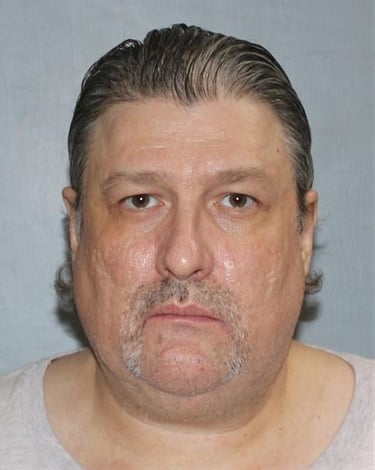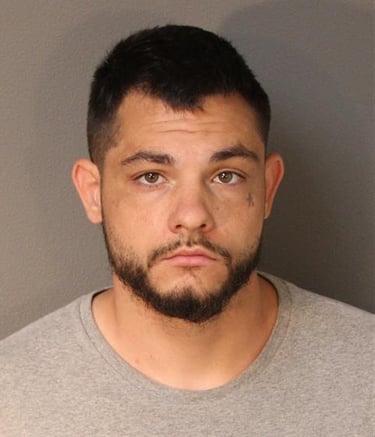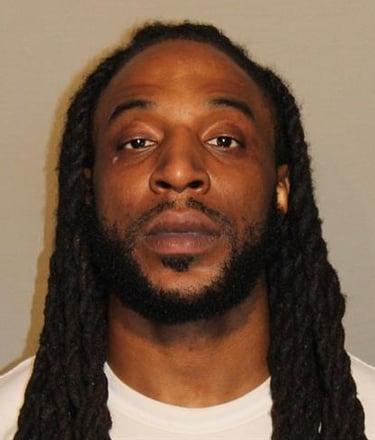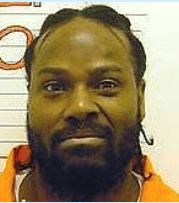Inside-Out Alliance of Kansas, Inc.
Be advised that according to KSA 50-6, 142, the unauthorized practice of law is prohibited and can lead to penalties, including civil penalties and potential criminal charges. It involves performing legal services or offering legal advice by someone not licensed to practice law in the state. This includes holding oneself out as authorized to practice law when one is not.
Inmates Seeking Assistance:
I’m writing this in hopes that enough people will get behind this and some changes can be made with the justice court and prison systems. My name is Cody L. Davidson and I’m in prison for attempted murder and aggravated kidnapping. I received a 61 yearlong sentence (732 months) from Wellington, Kansas in 1998. I’ve done 27 years straight on this sentence so far. I believe I’ve done enough time on this sentence and should be given another chance. I don’t take away from the crimes I committed, all crimes are terrible and all crimes should be paid for. But I feel like I paid dearly for the crimes I committed as a teenager and in my twenties. I don’t feel like people without a murder or sex conviction should be spending all their lives in prison with no possible way to get out. There should be a way people like me can work their way out of the prison system.
Over the years I’ve watched many, many people that have murders, rapes, child molesting crimes get out of prison or don’t have near the time I do. To me, those are the worst crimes. These people have taken lives and messed people up for life with these crimes. If these people are allowed to get another opportunity at freedom, surely people with lesser crimes should be able to. Taxpayers are paying millions and millions of dollars a year for hundreds of people throughout the prison system that have paid their debt to society and could be a productive part of society.
Instead of coming up with better reforms to relieve prison overcrowding and let people out, they just build more prisons, more beds to warehouse more people. In my opinion, the prison system has become a big money business. I believe they have stockholders. People wouldn’t invest in the prison system if there wasn’t a way to make big money off it. There is somewhere around 10,000 in the Kansas prison system. We each have a mandatory and forced savings account. 10 percent of all money sent into us by our families or money people made through private industry jobs at the prisons go into these accounts. We can’t use this money until we are released. This is millions of dollars altogether in these accounts, you can’t tell me all this money isn’t being invested. We don’t get any investment returns for our money being used. The taxpayers aren't getting any tax kickbacks for your money being used, so who’s getting this money? The shareholders and whoever else in the prison system is getting this money. I’m just trying to open people's eyes to the court and prison system. These are suggestions to look into.
Somewhere around 80 to 85 percent of people who get out of prison come back. That percentage I know up and down. The point is, whatever they are doing DOESN’T WORK. The court system is corrupt and no good a lot of the time. I’m all for law and justice to keep society safe, but it has to be fair, just, and not corrupt. If a person is poor and can’t afford a high-priced lawyer, you’re not going to get a fair trial most of the time. You can show them laws in black and white and they won’t follow it. Unless you have a high-priced lawyer to fight for you and hold the judger and D.A to the law your rights are going to be violated. A lot of the times the District Attorney (D.A) makes up a story about what he believes happened on the crime, so you’re convicted on a made-up story that isn’t even true. I got convicted on premeditated attempted murder. They said I thought about doing this crime months before it happened, which isn’t true. I’m going to write down here just a few of the violations in my case. This is not all of them. I’m taking these right off the court papers.
Issue #1: The trial court committed a reversible error when it failed to instruct the jury that to find Mr. Davison guilty of attempted murder, it must find that Mr. Davison committed an “overt” act, as defined by Kansas law. This error was a structural error in the trial mechanism because it denied Mr. Davison his right to trial by jury under the federal constitution and section 5 of the Kansas Bill of Rights. Mr. Davison was denied his right to a unanimous jury verdict over the attempted murder charge because the jury could have relied upon acts that are not legally sufficient “overt acts” under Kansas law to support a conviction.
Issue #2: The trial court committed reversable error in failing to instruct the jury to consider aggravated battery as a lesser offense.
Issue #3: Plaintiff was denied his constitutional right to effective assistance of counsel when defense counsel failed to recognize the need for a competency hearing to see if the defendant was competent to stand trial. The court records show that I was on enough mental health medication that I should have been hospitalized. I was going through hallucinations. That’s how they were taking me to court. A person is supposed to be in their right mind going to court.
Issue #4: Trial court abused its discretion in denying appellants motion to set aside conviction based on juror misconduct.
One of the jurors knew the victim's husband. You aren’t going to get a fair trial if the juror knew the victim's husband.
Issue #5: The victim of the crime was threatened that if she didn’t write a statement saying I did this crime she would
go to prison. The victim of the crime doesn’t even want me in prison, she’s been up to the prison several times to visit
me over the years. Like I said, this is just a few violations on my case, there are way more than this. I’m hoping the right
people see this post and want to help me. I believe there is a major lawsuit that can filed on my case. I’ve done 27
years on an illegal sentence. I will do anything to be released. I would never ever commit another crime. I’m willing
to do whatever I need to do to prove that. Please help me.


Cody Davison # 2000016098
If your loved one needs assistance, please reach out to us so we can share their story. While we can't promise specific results, raising awareness and sharing your loved one’s name can make a difference. Never lose hope!
Brandon Gross
Alot has been going on here in Hutchinson prison. First Ima start with how hot it is in our cells. We got a big metal door that stops any air flow and being in the middle of summer it’s probably 20 plus degrees hotter in our cells than outside. I am on mental health meds on top of heat stroke runs in my family. I have tried to tell the CO’s and the unit teams that it is too hot in my cell for me and that I feel like Ima pass out. They simply do not care.
On 8-6-25 I was overheating and instead of them taking this seriously they treated me as if I was high or on drugs. I told them I’m overheating and they ignored me, stripped me butt naked out on the run where everyone could see me. Then once they pushed me butt naked into the cell, two of the CO’s twisted the handcuffs , twisting my hands, forcing me onto my knees then pushing my head into the concrete then pulling me by the cuffs to them while my face was on the ground. And of course they did this while I was off camera. They waited to use force on me until I was off camera in the cell.
After that they left me butt naked with nothing in a nasty dirty cell that had piss and shit all over in it. I asked the CO for something to cover myself with and they laughed at me and told me I got nothing I was to sit butt naked in that dirty cell for 4 hours at least. While I was butt naked CO Nickels went to my cell and he threw all my personal property away. My books my family sent me, my Bible, my shoes, my watch, my Dad’s memorial, all my paperwork, letters from loved ones, all of my photos from family, my address book with my loved one’s phone numbers and addresses, over $150 of worth of hygiene my sweaters, my thermals, headphones..bowls and cups and more. Then they put me in a different cell with nothing, not even giving me any hygiene to shower with for over 2 weeks.
I also seen my books floating around the cell house when I said that those are my personal books my family got me and they are stamped with my name, people had done damaged them, ripping out all the pages. Plus they won’t give me a tablet. I had one but when CO Nickels lost my property, my tablet is missing too. The tablet is what we use to order hygiene and what we use to put phone time to call my loved ones. I feel like what they did was cruel and unusual punishment. But I don’t know. Let me know what you think.
Brandon


Brandon Gross # 2100212228
Michael Lewis:
First of all, I’m not guilty. I did not receive a fair trial. In addition to not having much help during my post conviction, I have been done absolutely wrong by the state of Kansas. I’m ready to do something about it. I need help, any type of help you can provide. Please. I don't want to be quiet about this any longer. My last appeal lawyer, Stacey L. Schlimmer, only talked to me once before she disappeared. My direct appeal lawyer, Rachel Pickering, never spoke to me or saw me at all, although she wrote two briefs on my behalf. My trial lawyer, Donald Smith, lied to me and convinced me to give up my jury trial in exchange for a bench trial with his friend Peter Ruddick. Another important point is everything my trial lawyer told me about the conflict of interest, which was explained as a reason to go with a bench trial. Peter Ruddick actually assigned his friend Donald Smith to my case because “somebody” decided that all public defenders defending me was a conflict of interest. So Peter assigned Donald to my murder trial experience.
Furthermore, Donald Smith said: “Peter is a very close friend” and “ man, Peter was soo drunk at my Christmas party last week, I had to drive him home!” and ‘’Peter officiated my wedding’’ and “Peter and My wife share a conjoined office” and “Peter and I go to KU games together all the time” and “ I’ve talked to a few of my colleagues and a few judges about your case we all think you should let Peter decide instead of an all white Johnson county jury.” Yes, Donald Smith said many things to persuade me to give up my jury trial rights.
I have been locked up since April 12, 2010, and I believe that I’m here illegally. My trial lawyer’s wife, being the secretary, was a conflict of interest. My lawyer was getting advice and talking about my case to his colleagues, and other judges broke the attorney-client privilege. The prosecution also presented a surprise rap video in the middle of my trial. I believe they broke the “Brady Law” because we knew nothing about the video before the trial started. My last time in court on this case was in July 2017, arguing some of these same issues. I have not heard anything or had any help since then. Please help me figure this out, or at least point me in the right direction. I just want to go home..
Everyone in the Kansas Department of Corrections is guilty, according to court documents; however, in God's eyes, some of those “Guilty” people are actually not guilty of the crime they’re in prison for. Most innocent people don’t have enough money to pay for a legit private lawyer. I ended up in the exact same position, and I’m currently fighting for my life because of it. I was arrested on April 12, 2010, for a murder I was not involved in. In 2012, I was found guilty of Murder and sentenced to 20/life plus 60 months. Although I have never killed anybody, I’m currently serving a life sentence for killing a man. The biggest misunderstanding in the history of misunderstanding. That's the only problem; it’s a major problem. The only solution, in my opinion, is Freedom. Free appcash.
When I saw my face on the news as a “person of interest”. I panicked, I was thinking. “How the hell am I a person of interest in a murder/ what does that even mean!?” I didn't trust “the family”; what if someone killed me because they thought I killed somebody else? Why would the public news station put an innocent man's face on the news as a person of interest in a murder!? My mind was panicking, and I was scared for some reason. My first instinct was to hide until something else developed or transpired. I thought if I hid long enough, they would find the murderer and leave me alone. It didn't play out like I thought it would at all…
On Easter morning, April 4, 2010, around 7 a.m., Curley Tyler's son, Eshawn Tyler, found his father's dead body in the driver's front seat of Curley's Escalade (R.I,13). The Escalade was parked outside of the Cottonwood apartments at 6300 Cottonwood Drive in Johnson County. Eshawn noticed that the Escalade was not parked in a usual manner (R. I, 13-14). The Tyler family told the police that Curley had about $3000 with him Saturday evening ( R. I, 14.) The family knew that Curley was supposed to meet Michael Lewis at Michael’s Grandview apartment.
Michael was buying a Mercedes-Benz from Curley, and thus, they were meeting for Michael to make a $1300 car payment (R.I,14-15). Michael testified that on Saturday night, he met with Curley after 11 p.m. at Michael’s Grandview, Missouri, apartment complex. Michael sat in the passenger seat of Curley’s Escalade and paid Curley money that went towards purchasing the Mercedes (R.XXII 65-66). Soon thereafter, Curley left the apartment complex. According to
Michael, the last conversation he had with Curley was a few minutes later. Curlew called Michael to get directions for getting back on the highway (R.XXII, 65-66). The following morning, Eshawn found his Father dead in the Escalade (R.I,13). Michael received calls from a few people, each telling him about Curley’s death. One of the Tylers threatened Michael. As Michael was heading to Curleys' apartment, he spoke with a pastor, who advised him not to go to
Curley’s place because the family was very upset with Michael. The family was blaming Michael for Curley's death because they knew that Michael had met with Curley the night before the shooting. On April 19, 2010, almost a week after the shooting, Michael left for California because he felt threatened by the Tyler family (R. XXII 83). He testified that he “just figured if I leave, let it die down, whoever killed him is going to get caught.” On April 12, 2010, the police located Michael in California and brought him back to Kansas (R.I,17). The state charged Michael with one count of first-degree murder or, in the alternative, Felony murder and one count of aggravated robbery. Prior to trial, the defense counsel filed a motion to dismiss after learning that some possible exculpatory evidence had been lost! (R.V.,3) Several months after the shooting, the police talked to Curley's son Eshawn and learned that the Escalade had a video security system. The system was set up to automatically photograph anyone who attempted to enter the escalator without the security Car key. The police, however, were unable
to retrieve any of the photos from the security system. The distinct court did not find that the destruction of the security system was a result of bad faith on the police’s part, and thereby denied the motion to dismiss (R.V,51). In a pretrial hearing, Michael waived his right to a jury trial. Michael felt that if he had a jury trial (R. XIV, 4) Michael explained he would not have a fair trial with a Johnson County jury because he did not think he would be treated fairly due to his
race (R.XIV,4).
Because Michael felt that he could not get a fair trial unless he waived his right to a jury trial, his waiver was not voluntary. Yet, the district court accepted Michael’s waiver, ruling that the court found Michael's waiver to be knowing and voluntary. Michael also did not knowingly waive his jury trial right because the district court did not fully inform him of what that night entailed. “Whether a defendant waived the right to a jury trial is a factual question, subject to analysis under a substantial review. But when the facts of the district court’s determination to accept a jury trial waiver are not disputed, the question whether the defendant voluntarily and knowingly waived the jury trial right is a legal inquiry subject to unlimited appellate review.” State v. Beaman, 295 Kan. 853, 858, 286p. 3d 876 (2012) (citing State V. Barnes, 293 Kan. 240, 260,262 p. 3d 297 [2011]).
When determining if a defendant has knowingly and voluntarily waived his or her right to a trial by jury, that determination is not made in a vacuum but must be
based upon the facts and circumstances in each case.” State V. Clemons, 273 Kan. 328, 340, 45 p. 3d 384 (2002). The law favors trial by jury. “ A criminal defendant has both a constitutional and a statutory right to a jury trial ( Larraco, 32 Kan. App. 2d at 999). The fundamental right to a jury trial has been codified in the Sixth Amendment to the United States Constitution, and K>S>A 22-3403(1). Further, in Bourne V. Atchison, T.3 S.F. RY.CO., 209 Kan. 511, 516, 497, P.2d 110 (1972), this court explained that as a matter of public policy, the state also has an interest in the subject of trial by jury. “The state has declined its policy on the subject not only by the decisions of its courts but also through acts of the legislature.” Bourne, 209 Kan. at 516 (citing state V. Ricks, 173 Kan. 660, 250 P. 2d 773 (1952). The right to a jury trial can be waived after the defendant is advised by the court of his or her right to a trial by jury and waives this right on the record, either in writing or in open court, State v. Irving, 216 Kan. 588, 590, 533 P.2 1225 (1975). That right may be waived if the waiver is done knowingly and voluntarily. ( Irving, 216 Kan. at 589).
Michael, Donald, Peter, and Lannie all came up with this mutual decision outside of the courtroom. According to Eshawn ( lead #18), Curley’s son, the family has heard that Ben Woods ( the man who shot at Curley a few months prior to his death) has a brother or a cousin who goes by the moniker of “fresh”, and that Fresh is a cold-blooded Killer. They have heard that Ben hired Fresh to kill Curley, but he could not provide any more details. Ben’s cousin, “Rocky,” apparently knows a lot about what happened; however, Eshawn did not have any more information about Rocky. The state argued all throughout the case The State argued all throughout the case that the escalade was super clean and always being washed. Nobody was allowed to touch it or drive it; however, it was a completely different story being told by the victim’s brother, Elliot Tyler, when he talked to Detective J. Stirling (4/05/2010, outside Agency, lead #1, Team #4). When asked if anyone else had access to Curley’s truck on a regular basis Elliott advised Curley drove the vehicle 90% of the time; however, several family members had access to the interior of it over the last six months to a year.
Despite so many inconsistencies and lies, Michal was found guilty. In a bench trial, Michael Lewis was convicted of aggravated robbery and felony murder for the shooting death of Curley Tyler. The district court sentenced Michael to life in prison, with parole eligibility after twenty years and lifetime parole for the felony murder conviction and a 61-month prison sentence with lifetime parole for the aggravated robbery conviction. The district court ran two sentences consecutively. In conclusion, although I may know what happened, I definitely didn't kill Curley Tyler. He meant a lot to me.
It’s a major problem that I’m in here for a murder I did not commit. I’ve never killed anybody, and I’m assuming I never will. I don't think it’s in me, I can't. I didn't say much about that night because I was afraid to; I still am. My life and my family’s lives are in danger, and our lives continue to be in shambles because of it. The only solution to this problem, in my opinion, is immediate release, or a new trial, or release time/served. I acknowledge that Curley’s Escalade was near my residence in Grandview, Missouri, in the early morning hours of April 4, 2010. The sole purpose of the meeting was to give Curley $1,300. I was confused and thought someone was in the front seat when he pulled up, so I decided to get in the back seat. I entered the Escalade through the back door. Curley had me place some Easter clothes in the third seat, as I sat in the back, and then he told me to hop in the front seat. I gave Curley 13 hundred-dollar bills, and then he left. I went to a club after meeting Curley. After clubbing, I headed to my mother’s house in Kansas City, Kansas. While en route, the goal was to exit at Shawnee Mission Parkway and go to Walmart for Easter, so yes, at 2:00 am on April 4, 2010, two hours after I saw Curley, I decided that I needed to pick up some easter goodies for the following morning. I spent all my money getting to California. I couldn't have had Curley’s thousands of dollars, and I didn't.
Although the state argued that Kelcy and I were calling each other, the fact is that she only called me. I didn't call Kelcy at all that night. So there was no way I was plotting and planning for Kelcy to pick me up, as the state alleged. In this case, Judge Ruddick ruled that he did not accept my alternative explanations for the vigorously challenged forensic evidence. By doing this, Judge Peter Ruddick created a miscarriage of justice and ruined my life. Judge Ruddick decided to mysteriously retire right after my case. My case is the last official case Judge Reddick heard. I believe he felt guilty.
The state failed to prove that it was Me who robbed and shot Curley. My conviction should be reversed. Before a person may be convicted of committing a criminal offense, the State must prove that such person is guilty beyond a reasonable doubt, as to every element of the crime charged. (In re Winship, 397 U.S 358, 361-64, 25 L. Ed. 2d 368, 90 S. Ct. 1068 (1970). Jackson V. virginia, 443 U.S 307, 61 L Ed. 2d 560, 99 S.Ct. 2781(1979), makes clear that this standard requires the reviewing court to review ALL of the evidence, not just that evidence supporting guilt, and that each element of the crime must be supported by substantial evidence, evidence sufficient to prove the element beyond a reasonable doubt. More than a “mere modicum” of evidence is required (Jackson, 443 U.S at 320 The state’s evidence against me was not sufficient for the district court to make a finding, beyond a reasonable doubt, that I was the person who shot and robbed Curley in the early morning hours of April 4, 2010. In order to prove I committed the offence of felony murder (count 2), the state had to prove that I did “unlawfully and feloniously, kill a human being, to wit: Curley M. Tyler, committed in commission of or an attempt to commit an inherently dangerous felony, to-wit: aggravated robbery as defined in K.S.A 21-3427 an off-grid person felony, in violation of K.S.A. 21-4706 (first degree murder) ( R.I,9.) The state failed to introduce any direct evidence that I had committed the two charged crimes.
Regarding my cell phone activity on the night of the shooting, an expert explained that the state’s reliance on cell phone tower activity for monitoring one’s movement was misleading (R.XXI, 52, 58-61) the expert explained that depending on the certain conditions, including weather, physical structures, cell phone activity, etc. a cell phone’s ping may connect with a cell tower far from one’s actual location. (R.XXI,56-57.) Consequently, using cell towers to gauge another’s movements can be highly inaccurate. More importantly, the state failed to prove that I had a motive to shoot Curley. The state’s argument was that I shot Curley while I was robbing him of $3,000 dollars (R.XXII, 128-134). For me $3,000 was not a lot of money-let alone enough of an incentive to rob and kill Curley. For example, to celebrate my birthday, I spent $500 to rent Curley’s Escalade for one evening. That night, Daniel Rowe and I had sex with two women in the back of the Escalade (Daniel testified these facts under oath on the witness stand during trial). At the time of the shooting, I was earning money from taking care of my grandmother, selling drugs, and gambling when playing dice. I would win several thousand dollars at a time. I also greatly benefited from my working relationship with Curley and Curley’s family. Curley and his sons would supply me with marijuana and cocaine to resell. In fact, the morning of Curley’s, I was driving to Curley’s apartment before I was warned by Elliot Tyler, the victim’s brother, that the Tyler family was blaming him for the Curley’s shooting. Only did the motive to steal a small amount of money not make sense, but I wanted to buy Curley’s Mercedes from him (R.XXII,56).
Additionally, the state’s evidence could not link me to the .10mm handgun that was used in a 2005 Kansas City, Kansas, shooting to which I had no connection to. I was in prison in 2005. The state’s evidence of my DNA in the Escalade only showed that I had, at one time or another, been in the Escalade. The state, more importantly, failed to prove that Curley had been shot outside of his apartment complex. As noted by the defence counsel in closing arguments, the type of handgun Used to shoot Curley, a .10mm is more powerful than a normal handgun, and thus caused greater impact. (R.XXII.151.) Because of this, it is very unlikely that the loud shooting could have taken place in within the confines of the Escalade without more people hearing it (R.XXII, 151). Nobody heard a gunshot. The state also failed to show a money trail following the shooting. The state’s theory was that I had shot Curley when robbing him of $3,000 (R.XXII,
128). The state never presented evidence that I later possessed this money. (R.XVIII-XXII, generally).
The amount of evidence present does not correlate with whether there was overwhelming evidence against me. Despite the number of witnesses and exhibits present, the evidence only reveals that I had been in the Escalade at some time during the past several months, that I had met with Curley and was on the phone on April 3, 2010, and that Curley had $3,000 on him when he was robbed. This evidence is insufficient to support the district court’s required finding beyond a reasonable doubt that I committed the crimes of felony murder and aggravated robbery. I did not kill Curley Tyler. I need to be released now... Free Appcash. Free Michael Lewis. A real killer is free.


Michael Trevon Lewis # 2000055065






